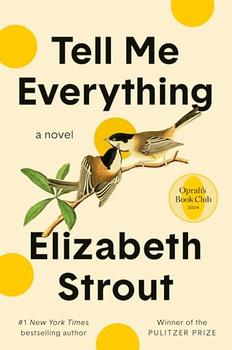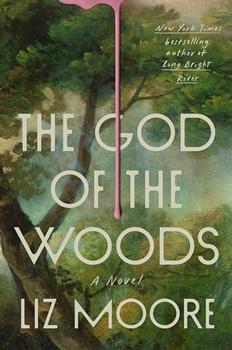Write your own review!
Frank Zhou
Interesting Book
Decent and interesting, for kids 9-11 years old native speaker.
y u wanna no
The Invention of Hugo Cabret
I am only 11 and this is my favorite book along with The Uglies! When U was reading this book I couldn't put it down! It looks like a big book but a sort of a big part of it is pictures but you HAVE to look at the pictures to understand!!!
kirst
The invention of Hugo Cabret is a fun entertaning read
Hugo is a young orphan and you then start to wonder why would a young kid live in a train station,what happens to his uncle,why does he have this automation,and why does he have to fix the clocks. And during part 2 you then ask your self when will Georges Me'lie's adopt Hugo because during the first part he doesn't like Hugo but as time goes on he starts to care for him. It is a great book for all ages
Aaron Mead
Gripping Story, Haunting Illustrations: The Invention of Hugo Cabret
Hugo Cabret is an orphan boy who secretly maintains the clocks at a Paris railway station. His father—once an horologist—died in a fire while repairing an automaton, a highly complex machine designed to look and to write like a human being. Hugo has salvaged the remains of the automaton, now hidden in Hugo’s room in the walls of the train station, and he steals mechanical parts in his attempt to finish his father’s project of restoring it. Hugo is convinced that, once restored, the automaton will convey a message to him from his deceased father.
However, when Hugo’s path intersects with Isabelle, another orphan, and her godfather Papa Georges—the toymaker in the railway station from whom Hugo has been stealing parts for the automaton—Hugo’s plan to restore the automaton yields unexpected results. The restored automaton indeed has a kind of message from Hugo’s father, but it turns out the message is also connected to Papa Georges. As the mysterious story unfolds, Hugo is slowly transformed from a secretive, mistrustful thief into an encouraging friend, reconciled with his painful past. Papa Georges and Isabelle are also transformed by their tumultuous encounter with Hugo in a beautiful story of redemption.
Several aspects of this story will appeal to young readers, aged nine to 12. First, the story is gripping. Selznick tactfully maintains the reader’s curiosity throughout the book. At first, we are driven by questions about the mysterious boy Hugo: Why is he alone? Why does he live in a train station? How does he survive? Why is he stealing toys? Why is he so passionate about the automaton? Will he successfully repair it? By the time these questions are answered, we care deeply about Hugo, and new questions have filled in that continue to drive the story forward: What does the automaton’s message mean? What is the automaton’s connection to Isabelle and Papa Georges? How will the drama play out?
In addition to maintaining the young reader’s curiosity, the story raises and addresses deep themes that are central to coming of age. For example, the book addresses head-on the theme of loss. All of the characters in the book are coping with loss. The story shows, in an age-appropriate way, both the genuine anguish that comes with loss, and also a way through loss in restorative relationships with others. The book also tackles the theme of life-purpose, a theme that will engage young readers beginning to wonder about their place in the world. Hugo—who has inherited his father’s talent for things mechanical—is convinced that, just like the parts of a machine, no part of the world is without purpose, including human beings. Hugo’s friend Isabelle struggles to find her purpose, and Papa Georges struggles to reclaim the purpose he lost.
The chief developmental value of this book is its extraordinary creativity. If ever the adage “the message is the medium” were appropriate, it is here. The form of the book puts it somewhere between children’s novel and silent film. The haunting black and white illustrations cause the book to transcend the ordinary novel form. The illustrations always occupy two full pages and often come in series of three or four. In places Selznick drives the story forward with the illustrations alone, thereby transporting the reader into the story in a way that is impossible with prose alone. In other books illustrations often share the page with text, and thus when the text has been read the reader is implicitly urged to turn the page and move on. However, in Selznick’s format, the illustrations exclusively own the pages upon which they appear, and so they invite the reader to pause and soak in the story in a way that illustrations on a page with text never do. Exposure to the fantastic creativity of this book will encourage in young readers a taste for the joy and beauty of creative books.
A second developmental benefit of this book is the sympathy it inspires for people experiencing loss. The reader identifies and deeply sympathizes with the loss experienced by each of the characters, and is thereby sympathetically attuned to loss in the lives of those around him or her. Moreover, although the reader is never led to approve of the moral transgressions of the characters—primarily lying and stealing—he or she is always led to understand the desperation and need that drive such deeds, and so the transgressions are portrayed in a realistically complex way that calls forth both virtue and sympathy.
My one caution about The Invention of Hugo Cabret is that the story is intense and shot through with loss, and so it may not be appropriate for younger or particularly sensitive children in the 9-to-12-years category. If you are concerned that such intensity may be difficult for your young reader, I recommend purchasing the book, reading it yourself, and making a judgment as to when it would be appropriate. However, to be clear, the question is not whether it would be appropriate—this is an excellent book that will profit most any child at the right time—but rather when it will be appropriate.
In sum, I give The Invention of Hugo Cabret, winner of the Caldecott Medal, my highest recommendation.
jenny
my review
This book is so fascinating, you can never put it down. When I first picked it up I thought it would take me a month to read the whole story, but when I started to read the book I couldn't put it down and it only took me two days to read it!!!
mad book reader
opinion
This book is awesome. You guys and ladies should read it.
Its like a movie back in the 1950s. so creative. and lots of details.
I'm only 7 years old and I read this book 4 times.
That's how I much I love this book.
Bridget Duncan
This was okay
This story of a young orphan named Hugo Cabaret, is fascinating yet sometimes confusing. The illustrations are fantastic and I cannot wait to read the sequel. Hugo was very interesting and intriguing, yet sometimes boring and confusing. But Hugo Cabaret was fine. I liked it.




